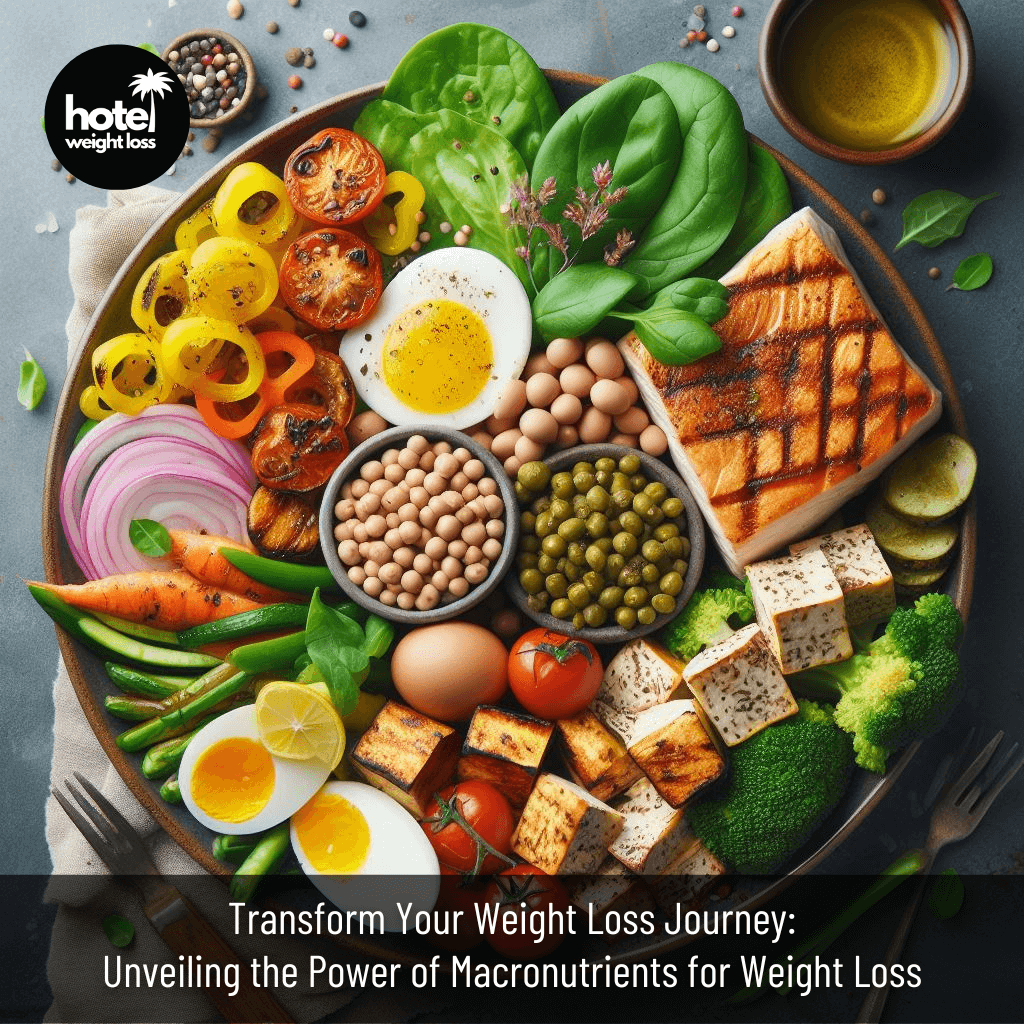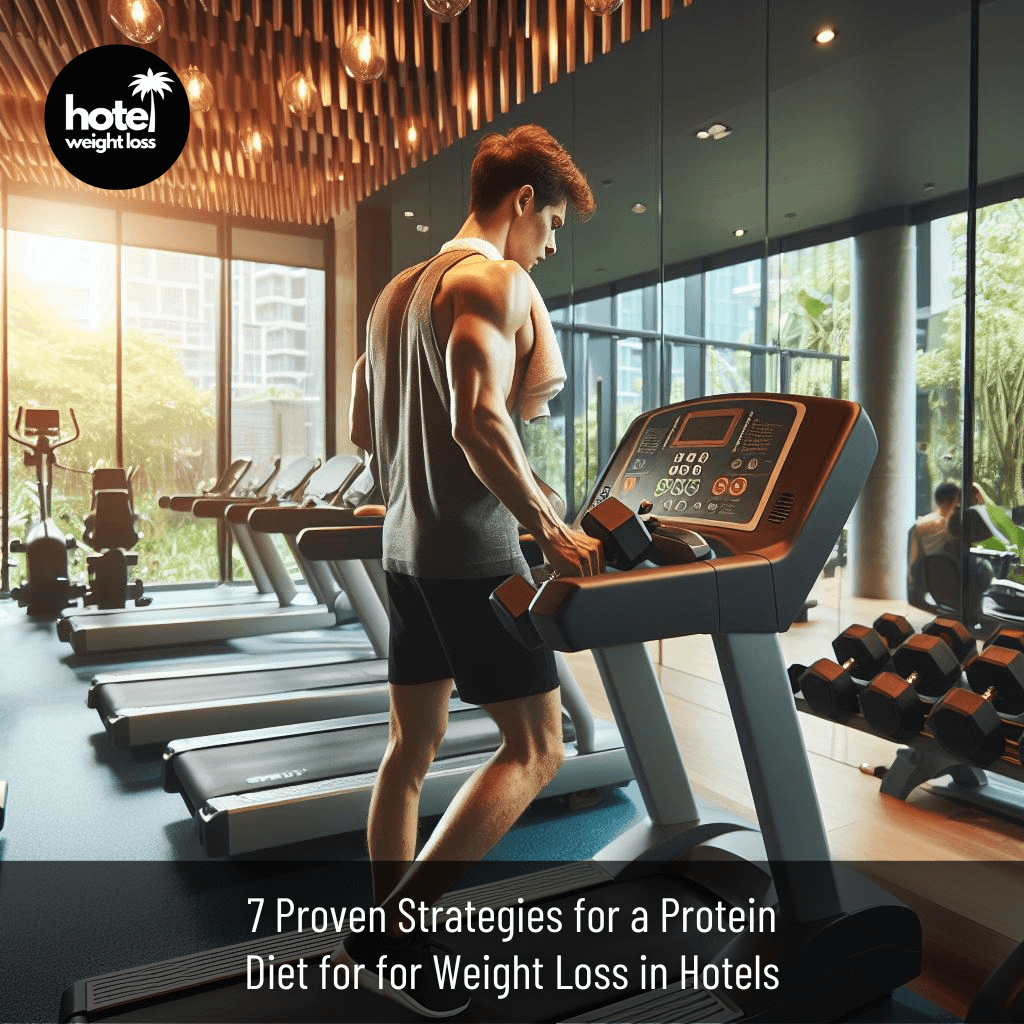Starting a weight loss journey can be likened to negotiating a maze, with numerous routes that appear to provide success but frequently terminate in dead ends. Amidst the maze of fad diets and conflicting advice, one beacon shines bright: the high-protein diet. Picture this – shedding unwanted pounds while indulging in savoury meals packed with protein-rich goodness.
In the medical journal “Contribution of macronutrients to obesity: implications for precision nutrition,” Rodrigo San-Cristobal and esteemed colleagues delve deep into the intricate relationship between macronutrients and obesity. They discover, by painstaking investigation, the critical function that protein plays in molding our bodies and redefining our health.
Key Takeaways
Let’s extract some important information before getting into the details of high-protein diets. Proteins, lipids, and carbohydrates are the macronutrients that make up the majority of our diet. But their quantity and caliber can have a big influence on our health and weight. Comprehending this dynamic interplay is essential to developing a customised nutrition plan.
Power of Best Macronutrients: Unveiling the Power of Protein
The Protein Paradigm: A Catalyst for Weight Loss
Protein isn’t just a building block for muscles – it’s a potent ally in the battle against obesity. High-protein diets have been shown to increase satiety, which can help control cravings and prevent hunger. Protein fires up the body’s calorie-burning engine by increasing thermogenesis and metabolism, which opens the door to long-term weight loss.
Precision Nutrition: Fine-Tuning Your Macronutrient Intake
In the realm of nutrition, one size doesn’t fit all. Enter precision nutrition – a tailored approach considering metabolic rate, activity level, and genetic predispositions. By adjusting the macronutrients you consume, you can maximise the effects of weight loss and attain long-lasting results. With protein taking centre stage, precision nutrition empowers you to sculpt your ideal physique with precision and finesse.

Breaking Down Barriers: High-Protein Diets Demystified
Navigating the landscape of high-protein diets can feel daunting, with myths and misconceptions lurking at every turn. From concerns about kidney health to misconceptions about meat-centric meals, it’s time to separate fact from fiction. By debunking common myths and arming yourself with evidence-based insights, you can embrace the transformative potential of a high-protein diet with confidence and clarity.
Beyond Weight Loss: The Holistic Benefits of Protein
While weight loss is often the primary goal, the benefits of a macronutrients extend far beyond the number on the scale. From promoting muscle growth and repair to enhancing immune function and supporting cognitive health, protein plays a multifaceted role in optimising overall well-being. By prioritising protein-rich foods, you can nourish your body from the inside out, unlocking health benefits.
Facts and Figures
Find in this figure presented in the original article the flow of weight and metabolism regulation within the human body.

Credit: https://sci-hub.wf/10.1038/s41574-020-0346-8
Conclusion
As we bid adieu to the age of one-size-fits-all nutrition, a new era dawns – one defined by precision, personalisation, and empowerment. Armed with the insights gleaned from “Contribution of macronutrients to obesity: implications for precision nutrition,” we stand at the threshold of transformation. But the journey doesn’t end here – it’s just beginning.
FAQs
-
What is a high-protein diet, and how does it aid in weight loss?
A high-protein diet emphasises protein-rich foods like lean meats, poultry, fish, eggs, legumes, and dairy products. By prioritising protein intake, this dietary approach promotes satiety, increases metabolism, and preserves lean muscle mass, contributing to effective weight loss.
-
Are there any risks associated with high-protein diets?
While high-protein diets are generally safe for most individuals, it’s essential to consume a variety of protein sources and balance macronutrient intake. Excessive protein consumption may strain the kidneys in individuals with pre-existing kidney conditions. Consulting a healthcare professional or registered dietitian can help mitigate potential risks and ensure a balanced approach to nutrition.
-
How does a high-protein diet differ from other weight loss approaches?
Unlike restrictive diets focusing solely on calorie reduction, macronutrients prioritises nutrient-dense foods that promote satiety and support muscle mass. By nourishing the body with adequate protein, individuals can achieve sustainable weight loss without feeling deprived or hungry.
-
Can a high-protein diet be customised to accommodate dietary preferences or restrictions?
Absolutely! One of the critical tenets of precision nutrition is personalisation. Whether you follow a plant-based diet, have food allergies, or adhere to specific cultural or religious dietary practices, a high-protein diet can meet your unique needs and preferences.
-
How does the keto diet impact insulin resistance?
The keto diet, characterised by high fat intake and deficient carbohydrate consumption, has shown promise in improving insulin sensitivity and reducing insulin resistance. By promoting ketosis, a metabolic state in which the body burns fat for fuel, the keto diet helps regulate blood sugar levels and may benefit individuals with insulin resistance or type 2 diabetes.
-
What role does Hotel Weight Loss play in supporting individuals on their weight loss journey?
Hotel Weight Loss offers a holistic approach to weight management, combining personalised nutrition plans, innovative keto diet strategies, and expert guidance from healthcare professionals. Our tailored programs cater to individual needs and preferences, empowering clients to achieve sustainable results and reclaim their health and vitality.
-
How can Hotel Weight Loss assist clients in overcoming common barriers to weight loss?
From debunking nutrition myths to providing practical meal planning and preparation strategies, Hotel Weight Loss equips clients with the knowledge, tools, and support they need to overcome obstacles and stay on track toward their weight loss goals. Our comprehensive approach addresses dietary factors, mindset, behaviour, and lifestyle habits.
-
What sets Hotel Weight Loss apart from other weight management programs?
At Hotel Weight Loss, we prioritise individualised care, evidence-based practices, and long-term success. Our multidisciplinary team of healthcare professionals, including physicians, dietitians, and fitness experts, collaborates to create customised plans that address each client’s unique needs and goals. Focusing on sustainability and empowerment, we guide clients on a transformative journey toward improved health and well-being.
-
Is Hotel Weight Loss suitable for individuals with specific medical conditions or dietary restrictions?
Absolutely! Our team has extensive experience working with clients from diverse backgrounds and with various health conditions, including obesity, diabetes, heart disease, and more. Whether you’re managing a chronic condition, navigating food allergies, or following a specific dietary protocol, we tailor our programs to accommodate your individual needs and support your journey to optimal health.
-
How can I start with Hotel Weight Loss and begin my weight loss journey?
Getting started with Hotel Weight Loss is easy! Contact our team to schedule a consultation and learn more about our personalised programs and services. Whether you want to lose weight, improve your health, or enhance your overall well-being, we support you at every step. Contact us today and take the first step toward a healthier, happier you!
Ready to embark on a personalised weight loss journey tailored to your unique needs and preferences? Contact Hotel Weight Loss today to discover how our innovative keto diet strategies can accelerate your progress and unlock your full potential. Don’t just dream of a healthier, happier you – make it a reality with Hotel Weight Loss by your side.
Also, see Conquer Any City: 5 Personalized Fitness Plans for Travelers (Who Hate Holding Back!)
References
San-Cristobal R, Navas-Carretero S, Martínez-González MÁ, Ordovas JM, Martínez JA. Contribution of macronutrients to obesity: implications for precision nutrition. Nat Rev Endocrinol. 2020 Jun;16(6):305-320. doi: 10.1038/s41574-020-0346-8. Epub 2020 Mar 31. PMID: 32235875.
Bluher, M. Obesity: global epidemiology and pathogenesis. Nat. Rev. Endocrinol. 15, 288–298 (2019). Retrieved from: https://www.nature.com/articles/s41574-019-0176-8
Gonzalez-Muniesa, P. et al. Obesity. Nat. Rev. Dis. Primers 3, 17034 (2017). Retrieved from: https://www.nature.com/articles/nrdp201734
Charakida, M. et al. Lifelong patterns of BMI and cardiovascular phenotype in individuals aged 60–64 years in the 1946 British birth cohort study: an epidemiological study. Lancet Diabetes Endocrinol. 2, 648–654 (2014). Retrieved from: https://pubmed.ncbi.nlm.nih.gov/24856161/
Bell, J. A. et al. Associations of body mass and fat indexes with cardiometabolic traits. J. Am. Coll. Cardiol. 72, 3142–3154 (2018). Retrieved from: https://pubmed.ncbi.nlm.nih.gov/30545453/




